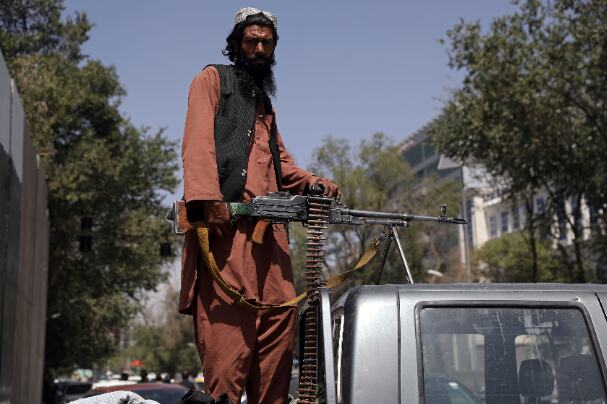Wait and watch

Nearly a week into the crisis in Afghanistan, the situation remains tenuous. With the Taliban still showing a remarkable level of restraint (compared to the last time it took over Kabul), the international community is considerably divided over how to engage with the situation. Some countries, like China, have been quick to acknowledge the legitimacy of the new Taliban regime. Indeed, China has been carefully establishing closer ties with the group for quite some time now. This culminated with a senior delegation from the Taliban travelling to the Chinese city of Tianjin last month where they were received by none other than the Chinese Foreign Minister Wang Yi. Other countries, including India, are still taking a careful 'wait and watch' approach with the Taliban. When asked about India's efforts in establishing diplomacy with the Taliban, External Affairs Minister Jaishankar stated: "At this point of time, we are looking at the evolving situation in Kabul... as Taliban and its representatives have come to Kabul and I think we need to take it from there." Though India successfully evacuated the last of its embassy staff on Tuesday, reports have emerged that the Taliban was not too keen on the idea of Indian embassy staffers leaving. As reported by NDTV, the Taliban was keen to make an outreach effort to India by assuring the nation that its diplomats and embassy staff would be entirely safe in Afghanistan. The group also made a show of assuring the safety of around 200 Hindus and Sikhs who have currently taken refuge at a gurudwara in Kabul. All this, of course, is part of the Taliban's wider effort to appeal to the world community that it is a changed organisation that deserves a seat at the table of civilised nations. The Taliban has a few reasons for doing so. First, it wants legitimacy for its rule. But more importantly, the Taliban wants access to the international development aid funds that were made available to the Afghan government. For now, all of these funds have been frozen after the fall of Kabul. This puts the group in a somewhat desperate situation. While the Taliban is known to be well-funded with a cash flow equalling USD 1 billion every year, the group is no longer just an insurgency. Now, the Taliban is seeking legitimacy as the head of a nation of around 39,917,108 people. It is left with a nation that has been fractured by near-constant war and has seen uneven levels of development and wealth distribution. These problems are now the Taliban's problems and it needs funding, material aid and foreign expertise to navigate them. It, therefore, makes sense that the Taliban is trying out a more media-friendly persona for the time being as it tries to assure the world that Afghanistan and its people will be safe under the rule of the Taliban, whatever shape or form it may take. But cracks are slowly forming. In the streets of Kabul and elsewhere in the country, protests are slowly gaining pace. Tens of thousands of Afghan citizens are looking to escape the country in any way they can. At the same time, critical workers and government employees are still hiding from the group despite assurances of amnesty. This means that basic services like electricity and sanitation are likely to be affected soon under this state of affairs. In addition, the Taliban's war to stake its claim over Afghanistan may not actually be over. Amrullah Saleh, the former Vice President of Afghanistan, has declared himself the 'caretaker President' of the country and has vowed to continue leading opposition against the Taliban. Saleh is currently known to be based in the northern Panjshir province, a long-held base of anti-Taliban groups and activities. There, he has likely found common cause with Ahmad Massoud, the son of the legendary Ahmad Shah Massoud, the 'Lion of Panjshir' and arguably the most prolific leader of the Northern Alliance. The flag of resistance has once again been raised and the Northern Alliance looks set to rally all remaining anti-Taliban dissidents under its banner. At the moment, the Taliban's effort to appeal to the international community also seems at risk of falling apart before it can fully take hold. Its slowly increasing brutality in dealing with dissidents is one factor. Another factor is how the Taliban seems to already be engaged in a campaign to not only prevent the evacuations at Kabul from taking place but also to enact revenge on those it sees as 'western collaborators'. On Friday, reports emerged that the Taliban had murdered one of the family members of a Deutsche Welle reporter while injuring another family member as they searched for the reporter in question. There are also accounts of the Taliban organising mass searches for other western collaborators throughout Afghanistan, with the group reportedly threatening violence against family members in cases where it cannot find the collaborators. In such circumstances, it becomes harder to accept that the Taliban has changed. This in turn will likely make it much harder for the group to gain the wider acceptance and attention that it looks to so desperately need at this moment.



